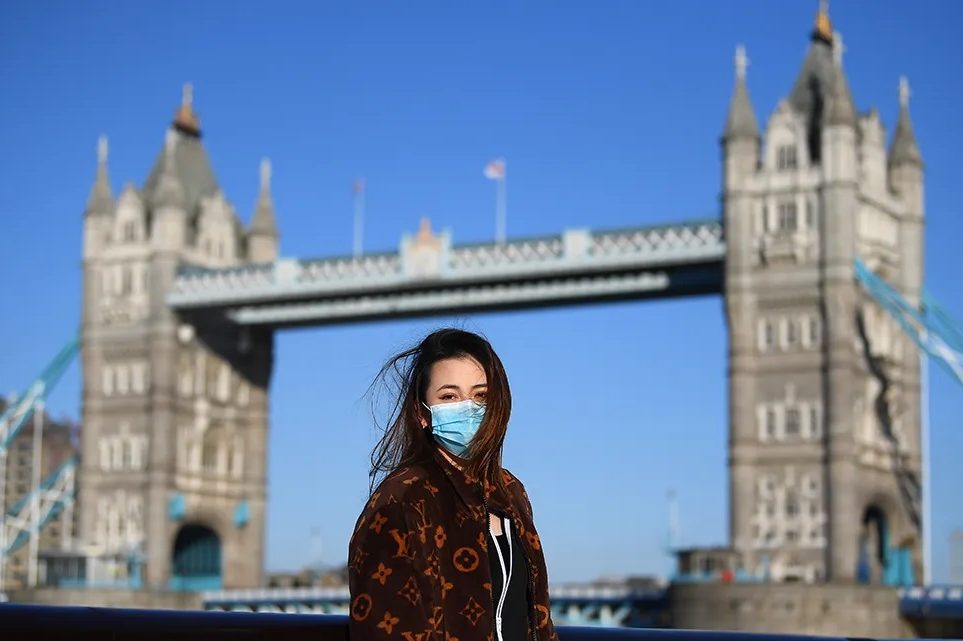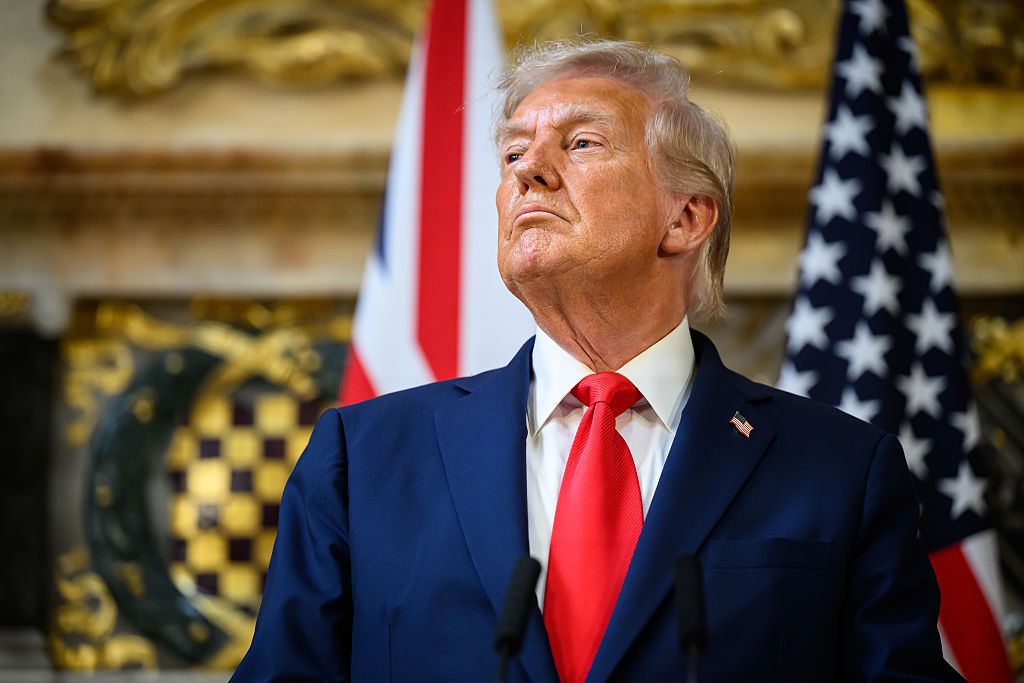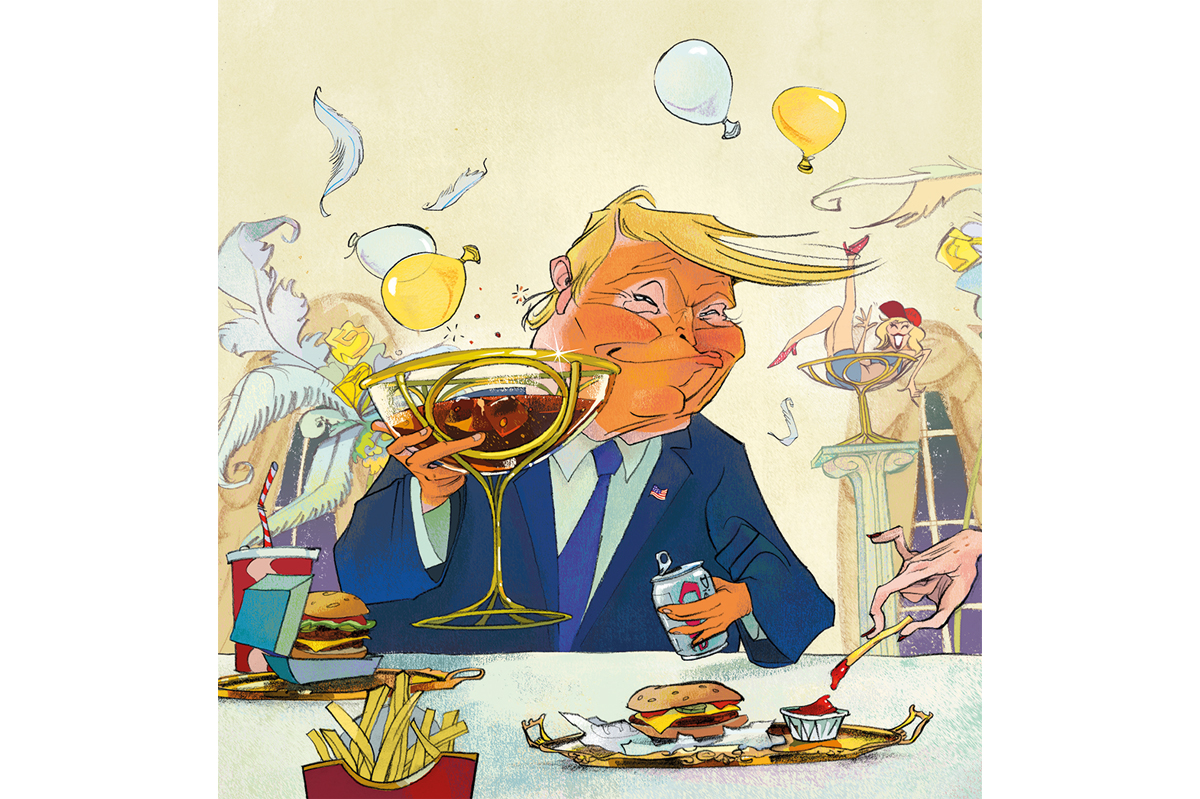Curiously unobserved about last month’s US presidential election: how astonishing it was that the candidates’ policy positions during the pandemic played a role in neither the campaigns nor the results. It may feel as if Covid was a long time ago, but do the math. It wasn’t.
In the US and in the West writ large, medical hysteria gravely blighted a good two-and-a-half years of our lives, only roundly concluding a couple of years ago — if then, for several passengers on my flight to London last week were still wearing those insipid paper masks, the sight of which inspired both my pitying contempt and shudder-inducing flashbacks.
Yet the biggest public health debacle in world history has been subject to a willful public amnesia, as if it never happened. Surely you’ve noticed yourselves that the subject never arises in conversation, when so recently the C-word was all we could talk about. By “debacle” I meant, of course, not the spread of the virus itself, but the spread of unprecedented, anti-democratic political overreach; of irrational, superstitious micromanagement of the disgusting, infectious proles; and of the high-handed, wholesale cancellation of civil rights. You’d think that populations so abused would take a vicious electoral revenge at first opportunity.
The public were complicit too — the dumbest of regulations enjoyed widespread popular support
But no. During this year’s British parliamentary campaigns, Prime Minister Keir Starmer’s Covid scorecard didn’t remotely feature, although in opposition the Labour leader had neglected his duty to — duh — oppose the government’s inane pandemic restrictions. Starmer’s only opposition to petty, ineffective but infuriating Tory regulations was to complain they weren’t infuriating enough. By this summer? Nobody cared.
Before bowing out, Joe Biden was on the back foot regarding the Afghanistan withdrawal, illegal immigration and inflation (too rarely blamed on excess government spending in compensation for a suffocated economy). Yet his coercive Covid policies — big on school closures, lockdowns and vaccine mandates — never surfaced as a top-ten electoral concern. Donald Trump’s patchy pandemic record didn’t matter either. Once Democrats were scrambling for a Biden sub, the Michigan governor Gretchen Whitmer appeared on every pundit’s shortlist. Yet no one dismissed Whitmer as a viable replacement because she’d imposed some of the most vicious and long-lasting pandemic oppression in the country. Presumably even Michiganders have forgotten all about it.
How to explain this mysterious amnesia? Firstly, while some claimed to find that period of enforced leisure eerily enjoyable, it hasn’t aged well. I got lots of work done, but in my mind’s eye that era is blank and static, as if time had stopped — though it hadn’t, which is what made the paralysis so awful. Not Covid but Covid policies carved a substantial chunk from this decade of our lives and binned it like so much gristle. Well-adjusted people don’t dwell on bad life, much less disappeared life. We repress the unpleasant, and we all seem to have tacitly agreed that in retrospect Covid was so unspeakably horrid that it’s no longer a respectable subject for the dinner table.
Secondly, back when it took bottle, what politicians advocated sanity, rationality, evidence-based science and a sense of proportion? In the US, a few governors such as Florida’s Ron DeSantis held out for common sense and kept their economies ticking over. But which members of parliament in the UK could truthfully claim that in 2020 they defended civil rights? So rare were politicians with a spine at the time that most voters couldn’t have supported candidates with a courageous record on Covid. Often, there weren’t any.
Thirdly, the public were complicit. The dumbest of regulations enjoyed widespread popular support. With a few primitive searches, anyone can learn the utter epidemiological futility of all that “Rule of Six” foolishness, but most people are under-motivated to “do the work,” as “anti-racists” would say. No one wants to have been wrong. No one wants to have been duped. And no one wants to have missed saying goodbye to their late father for no good reason.
Lastly, officialdom has never set the record straight. Excess death figures demonstrate conclusively that states and countries with heavy-handed Covid policies had no better outcomes than those with light or negligible controls. Yet most people still believe that lockdowns, mask and vaccine mandates and other scientifically unsupported interventions saved millions of lives. Both the authorities and their media poodles have no interest in disabusing the public of this impression. Britain’s Covid Inquiry seems to have been convened solely to justify all those regulations, to deplore lockdowns only for being installed too late and to castigate politicians for breaking their own stupid rules. In his interview with Spectator TV last week, Boris Johnson dared to question his administration’s ever-changing pandemic decrees — they were too “complicated” — but he kept well shy of renouncing the whole control-freaking shebang as a catastrophic mistake.
I know you don’t want to think about it — I don’t much either — but this matters. We’re already hearing alarmism about bird flu, and I’ve no idea if the anxiety is warranted. But the chances of public health hysteria returning around another contagion are high. We’ve never officially established that lockdowns cannot contain a virus and that they damage more than protect us. The next scare, house arrest will be back.
Which is why, among a host of dubious pending appointments, Trump’s choice of Jay Bhattacharya to lead the National Institutes of Health (NIH) is heartening. The Stanford health economist’s hardly absurd proposal to shelter only populations at real risk from Covid and to let the rest of us get on with our business drove Google to shadow ban his heretical Great Barrington Declaration and enraged high priests such as “I am the Science” Tony Fauci. While Bhattacharya is returning sanity to public health, he might also get the NIH to start awarding research grants to parties battling disease and infirmity rather than the ones who write the most convincing “diversity supplement.”
Don’t you imagine that pandemic-era incompetents and bald-faced liars (“If you get the vaccine, you won’t get Covid and you won’t pass it on!”) are delighted for us to forget all about it? Let’s not be so obliging. I’m loath to bury the memory of being stifled, imprisoned and treated like an idiot a second time.

























